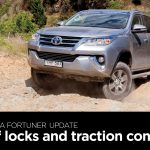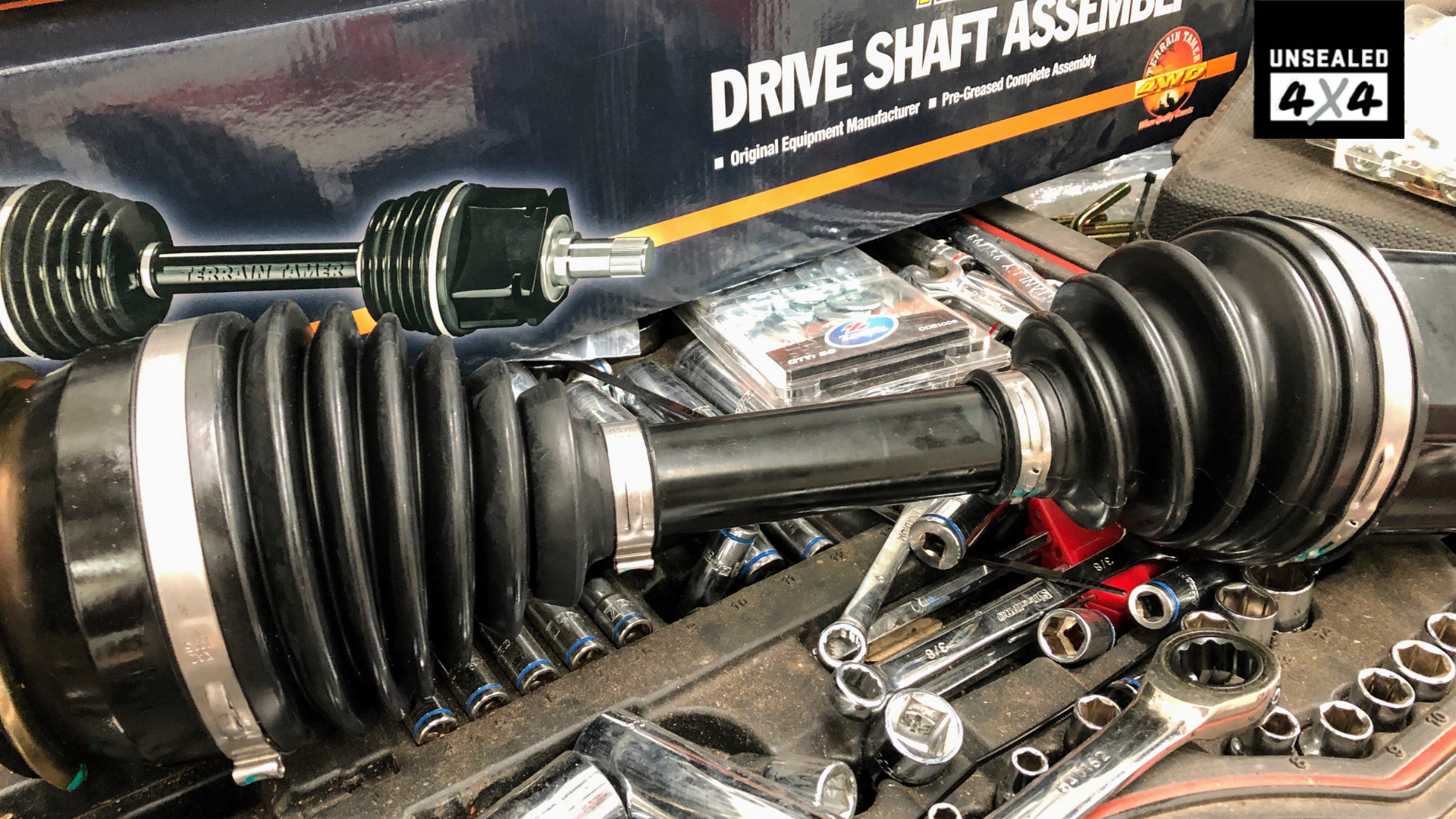And why you should really start thinking about it…
Let’s think about all of the common modifications out there that we do to our 4WDs. We love these mods because they make our 4WDs better 4WDs. Barwork increases our approach angle (and swaps plastic for steel), and it houses winches and protects from animal strikes. Storage drawers make organising easy, and roof racks store that bulky camping gear we can’t fit inside.
You don’t need to be Isaac Newton to figure out that barwork, winches, storage and other gear will all negatively affect your 4WD’s braking performance. Another favourite, increasing your tyre diameter, also takes a chunk out of your bite – and puts your braking system under considerably more strain when you’re off-road.
But people forget that an improved braking system also makes your 4WD better. You’ve got a safer vehicle on the blacktop, and brakes that handle heat and stress also go a long way.
THE FORGOTTEN UPGRADE
The fact that a majority of 4WDs are automatic these days also puts your brakes under the spotlight. Engine braking on steep descents has never been the same since those heady days of big-capacity diesels and low-geared manual transmissions in 4WDs. These days, the lack of engine braking is made up for by complex and sophisticated electronics – which use the ABS system to control a vehicle down a steep descent. What’s doing all of the hard work? Your brakes!
Think about it: If you’re fully loaded, using hill-descent control for hours on end in the Victorian High Country, you’re asking a lot of your brakes. Heat build-up can be huge, which will inevitably lead to fading of your braking performance. And the last place your want your brakes to cark it is halfway down Zeka Spur Track. It’s a bit less common in the days of disc brakes, but it’s not unheard of.
WHY REPLACE WHEN YOU CAN UPGRADE
Stock standard, your brakes are probably up to the job. They aren’t great, but they are good enough. Add a half-tonne of off-road gear and accessories, and suddenly that equation doesn’t add up so well. Add some general wear and tear into the scenario, and your brakes suddenly don’t look so crash hot (excuse the pun, or don’t).
If you’re looking to give your brakes a birthday, it’s worth looking at upgrading some parts instead of straight replacement. I’m not talking about full-blown replacement and modification of everything. Rather, bolt-on upgrades that still fit within the framework of your current setup.
FACTORS THAT AFFECT YOUR PERFORMANCE
Pads: Old or cheap brake pads simply won’t bite as well as the best ones. These are the easiest things to replace.
THE FIX: Look at using units especially designed for improved performance or 4WD applications, like Bendix for example.
Rotors: Rotors wear down, especially on braking setups which sacrifice rotor wear for performance. Check if there is a lip on the outer edge of your rotors, which will indicate how worn they are.
THE FIX: Rather than using factory gear, consider a quality aftermarket solution that can improve performance. Ventilated rotors expel the heat better, where slotted rotors get rid of the gases to improve braking performance.
Fluid: Brake fluid is especially designed to not compress under heat and pressure, which means all of your braking force is making its way to the callipers. If air (or moisture) gets into your fluid, that resistance to compression is reduced.
THE FIX: Brake fluids are rated by their boiling point and DOT 4 fluid is typically good enough for most 4WDs. The most important thing here is that the fluid is fresh and uncontaminated. If it isn’t, book your 4WD in for a fluid replacement and bleed.
Brake lines: If you’ve got a 4WD that has seen quite a few summers, or has been bashing through rough and corrosive country for a fair while, your rubber brake lines might be a bit worn out. As the rubber ages and degrades, it can expand – which means not all of your pedal pressure is reaching the brakes. Net result: Reduced performance.
THE FIX: The simplest fix here is to replace the lines with quality aftermarket or OEM gear. Don’t skimp on your brakes! For those wanting an upgrade, custom braided lines can improve pedal feel. If you’ve modified your suspension, don’t forget that you might be stretching your brake lines as your wheels articulate.
Tyres: Of course, the round rubber is your only connection with the ground. If it’s not 100%, your brakes won’t be either. Three simple reasons why tyres aren’t performing well: They’re worn, they’re old, or they’re crap.
THE FIX: Check how much tread you’ve got, and also decode the manufacture date to know how old the tyres are. If they are worn or old, replace them with good quality, reputable stuff. For god’s sake, don’t waste your money on cheap crap!









